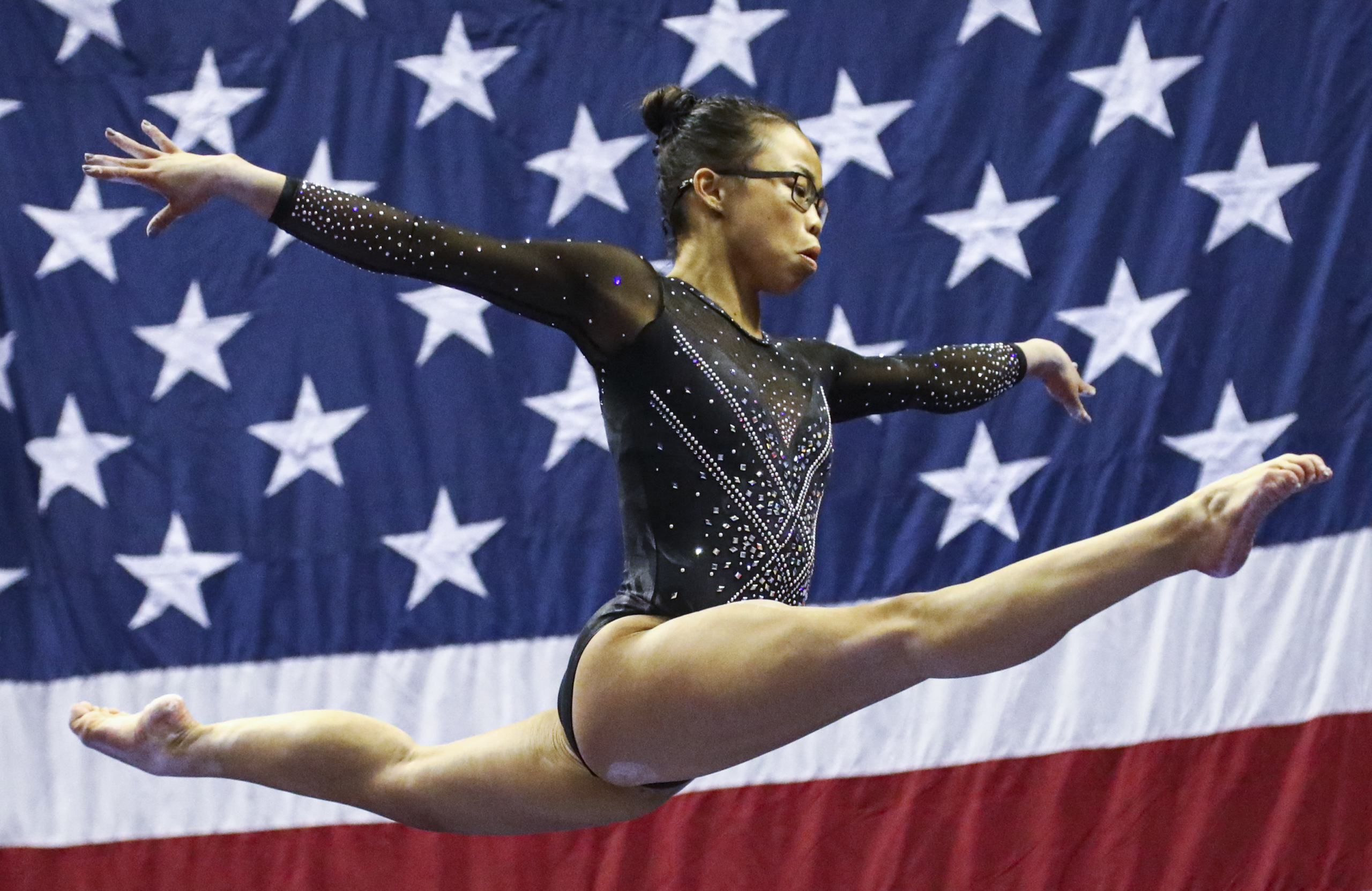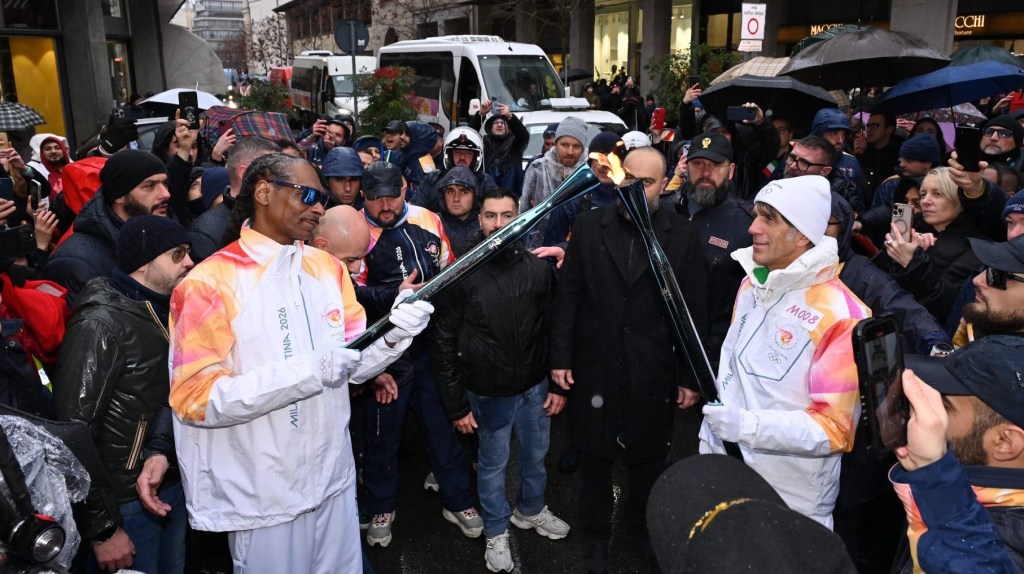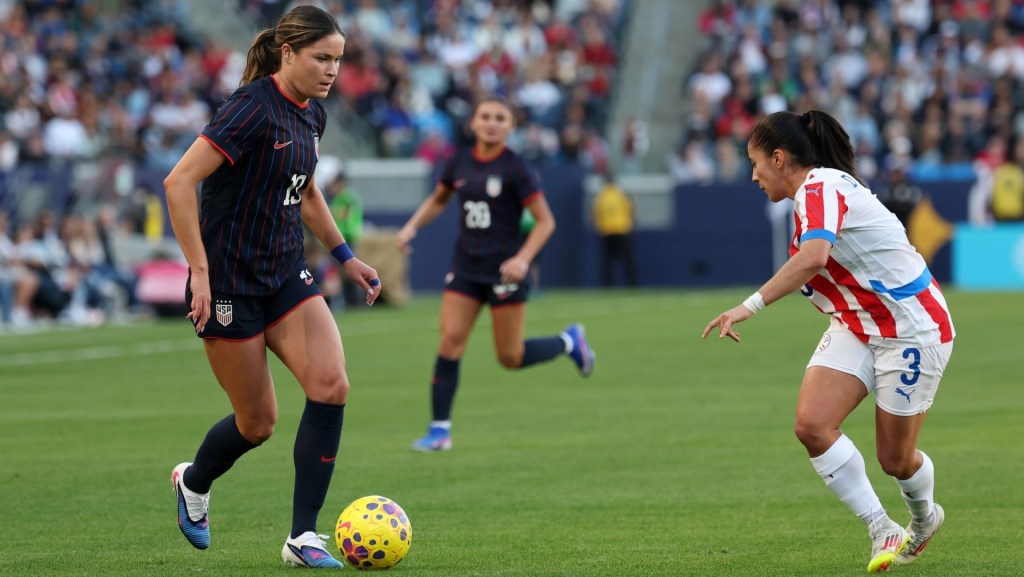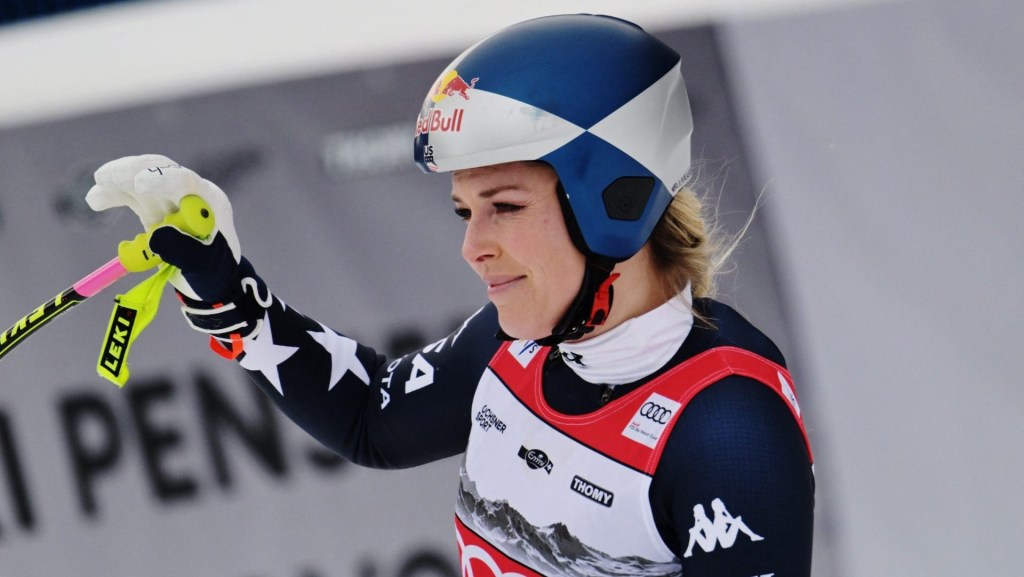As the coronavirus pandemic rampaged the country and forced non-essential businesses to shut down, First State Gymnastics put out a plea to their customers on their social media pages: please stick with us.
The post was a cry for help. First State Gymnastics had to close for two and a half months, and Slava Glazounov, the owner and head coach of the Delaware gym, said that he wasn’t sure they would be able to reopen. That would mean athletes like Morgan Hurd, the 2017 World All-Around Champion and an Olympic contender, would have to find a new place to train.
“That was a stressful period,” Glazounov said. “There was no income.”
They were able to hold on thanks to support from parents, but the gym is still in survival mode as they begin the process of reopening. They are operating at 15% capacity and allow just 18 people into the 18,000 square foot facility at a time. Only competitive and elite gymnasts are allowed to train.
First State Gymnastics is not alone. While some gyms in states like West Virginia and Arizona were allowed to stay partially open during the shut down, none have been able to operate at full capacity.
USA Gymnastics provided a list of guidelines for reopening, but was not able to provide any economic relief like other national governing bodies were able to do. USA Swimming, for example, pledged $1 million dollars in grants to support member clubs. USA Gymnastics declined to comment on this story.
The break was too difficult for some gyms to handle. Some, like Bucks Gymnastics Center in Pennsylvania, which had been open for 39 years, closed permanently. Others, like Silver Stars Gymnastics in Maryland, had to lay off all of their employees.
Glazounov was worried the same thing would happen at First State Gymnastics, a gym he opened in 2006 and built into one of the premier elite programs on the east coast. He took action, starting a GoFundMe to raise money so he could pay his employees – it brought in just over $7,000. The gym also did a tee-shirt fundraiser, and some parents continued to pay tuition even though the gym stopped charging members.
“We were super grateful for that,” said Glazounov. “A lot of them kept the payments going, which helped the gym survive.”
READ MORE: Fundamentals: Special Olympics CMO Kelli Seely
First State Gymnastics has five elite gymnasts, including two national team members. The gym makes most of their money from classes though, and they had to cancel the entire spring semester.
To make room for more customers, Glazounov has had to limit training time for Hurd and the other four elite athletes. They are now practicing for 12 to 16 hours a week, compared to an average of 30 hours a week before the coronavirus pandemic. Glazounov has developed a plan to help the group slowly and safely get back into shape, but the reduced training time will lengthen the process.
Hurd said she worked out on her own during the closure, practicing skills on a low beam, conditioning and stretching. First State Gymnastics is the only gym she has trained at, and she said it would be devastating if they had to shut down. There are no other elite gyms within two hours.
“This gym means the absolute world to me,” Hurd, who is 18, said. “It’s more my home than my actual house. I’ve been here basically since it’s been open. Everyone here is like my family.”
Glazounov said they are cleaning constantly and doing everything they can to ease safety concerns. Athletes are given a starting time and are assigned to one of three entrances to the gym. Temperatures are checked before they are allowed to enter. The gym has three floors, and they limit each floor to six gymnasts at a time. They also purchased a machine that sprays disinfectant onto equipment, and each gymnast cleans their station and wipes down their mats after each use.
READ MORE: Fitness Industry Pushed Into Changes as Companies of All Sizes Scramble
“We are doing less turns this way, but we have to do what we have to do,” Glazounov said.
Even with the extra precautions, Glazounov said some families are tentative to allow their children to return to the gym. Others, he worries, may never come back.
First State Gymnastics began summer camp on June 15, another big revenue-driver for the gym, but Glazounov said he can count on two hands the number of people who have registered. He does not expect more to sign up.
There is still a long road back for businesses into the fitness industry. According to a survey from the Sport and Fitness Industry Association, 60% of fitness companies project that sales will not be back to pre-covid levels until 2021 or later.
For First State Gymnastics, the goal is to try and survive the next few months, and hopefully resume normal training schedules later this year.
“We have to last the entire summer,” Glazounov said. “We still have another three months to go of very challenging times.”












